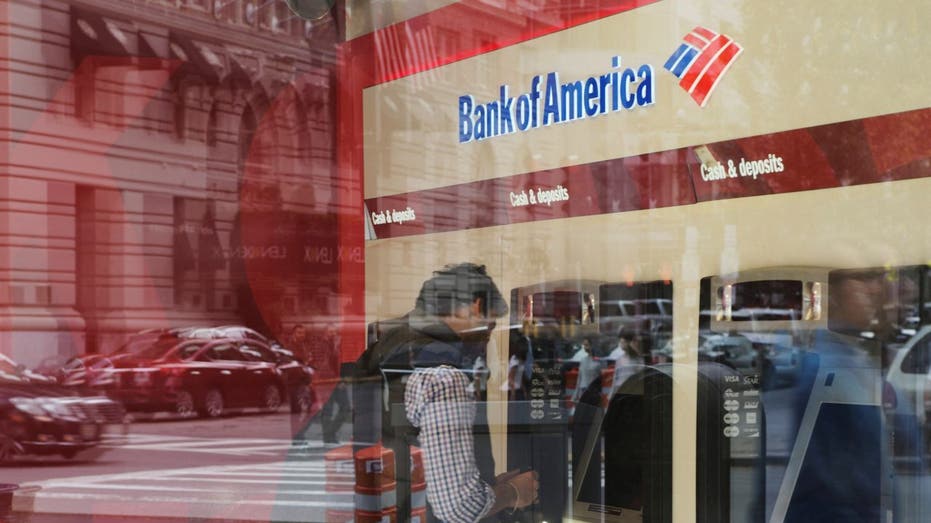Banks brace for more consumers to fall behind on their loans
Delinquencies are rising, prompting lenders to add to rainy-day funds
John Lynch: If big banks take larger provision, they give a signal that a recession is looming
Mahoney Asset Management CEO Ken Mahoney and Comerica Wealth Management CIO John Lynch assess Bank of America, JPMorgan Chase and Wells Fargo's stocks performances on earnings and revenue on 'Mornings with Maria.'
U.S. banks dusted off their recession-ready playbooks at the end of 2022.
Regional lenders and banks with big credit-card businesses continued to profit from borrowers who ran up credit balances at higher interest rates in the fourth quarter. But many tightened their lending standards and set aside more money to cover potential loan losses, signs that they don't expect the good times to last.
Capital One Financial Corp. set aside roughly $1 billion to cover potential loan losses in the fourth quarter, a 33% increase from the previous quarter. American Express Co. increased its reserves by more than 25%, setting aside nearly half a billion dollars. Both had drawn down those rainy-day funds a year earlier.

This July 22, 2019, file photo, shows a Capital One mailing in North Andover, Mass. (AP Photo/Elise Amendola, File / AP Newsroom)
"We have, of course, a very vigilant eye on the economic environment that we're moving into," Capital One Chief Executive Richard Fairbank said on a call with analysts this past week.
NEARLY HALF OF AMERICANS 'SACRIFICING RECESSION PREPAREDNESS' WITH MONTHLY BANKING COSTS
Consumers have been a bright spot in the economy. They continue to spend at a solid clip in the face of higher inflation, though they cut back during the holidays and added to their savings. And unemployment remains at its lowest level in decades.
| Ticker | Security | Last | Change | Change % |
|---|---|---|---|---|
| COF | CAPITAL ONE FINANCIAL CORP. | 222.79 | +5.86 | +2.70% |
| AXP | AMERICAN EXPRESS CO. | 359.13 | +4.96 | +1.40% |
| DFS | NO DATA AVAILABLE | - | - | - |
But there are signs that some households are coming under pressure. Borrowers have put more purchases on credit cards, but they chipped away at balances at a slower rate. Delinquency rates on credit cards and consumer loans in the fourth quarter approached or hit levels they were at before the pandemic, when stimulus and lower spending on services allowed consumers to bulk up their savings and pay down debt.

A couple reviews their credit card bill. (iStock / iStock)
Delinquency rates have surpassed prepandemic levels in some corners of the consumer-lending business.
At Ally Financial Inc., the percentage of car loans that were more than 60 days past due rose to 0.89% in the fourth quarter from 0.48% a year earlier. Discover Financial Services reported that more than 2% of its private student loans were 30 or more days delinquent, a half-percentage-point increase from a year earlier. Both of those rates were higher than in 2019.
| Ticker | Security | Last | Change | Change % |
|---|---|---|---|---|
| ALLY | ALLY FINANCIAL INC. | 42.33 | +0.20 | +0.47% |
BANK EARNINGS BEAT EXPECTATIONS DESPITE ‘HEADWINDS’, JPMORGAN CEO ‘PREPARED FOR WHATEVER HAPPENS’
"I think there are certainly a lot of concerns about what may come with the economy and the potential for a recession in 2023," Discover Chief Executive Roger Hochschild said in an interview. "But where we sit right now, the consumer is still doing pretty well supported by a very strong employment market."
He added that a rise in demand for products used to consolidate debt could suggest borrowers are more stressed. Discover's personal-loan balances grew 14% in the fourth quarter from a year earlier.

A customer uses an ATM at a Bank of America branch in Boston, Massachusetts, U.S., October 11, 2017. REUTERS/Brian Snyder/File Photo (REUTERS/Brian Snyder/File Photo / Reuters Photos)
"We definitely have been tightening our credit standards," Mr. Hochschild said. "We're always looking for pockets of stress."
The process is a delicate balance for lenders, who can hurt their bottom line if they tighten too much.
CLICK HERE TO GET THE FOX BUSINESS APP
| Ticker | Security | Last | Change | Change % |
|---|---|---|---|---|
| RY | ROYAL BANK OF CANADA | 170.42 | +1.64 | +0.97% |
"It can almost be viewed as a high-wire act," said Gerard Cassidy, an analyst at RBC Capital Markets. "On the one hand, you don't want to be overconservative and shut down lending, but at the same time you don't want your lending standards to fall by the wayside like in 2006."




















